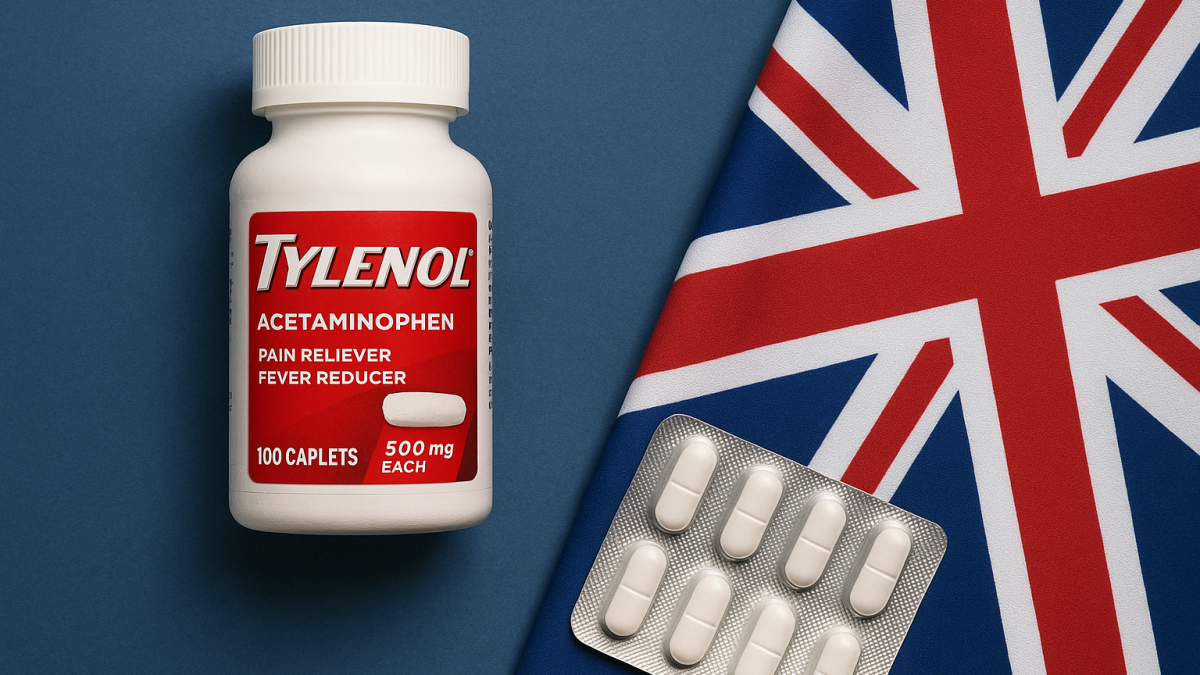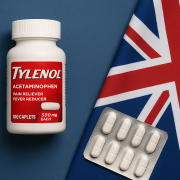The British government has issued a strong rebuttal to claims made by US President Donald Trump linking paracetamol use in pregnancy to autism.
At a White House event on Monday, Trump urged pregnant women to avoid the painkiller, known in the US as Tylenol, despite a lack of supporting medical evidence.
His remarks, made alongside health secretary Robert F. Kennedy Jr., triggered swift responses from both British officials and health regulators, who warned that ignoring established medical advice could harm unborn children.
UK government stresses medical evidence
Health Secretary Wes Streeting directly addressed the matter in an interview with ITV on Tuesday, telling British patients to disregard Trump’s remarks.
He stressed that medical guidance from doctors and health professionals remains unchanged, with paracetamol considered safe for use in pregnancy when taken as directed.
Streeting’s intervention is notable because Prime Minister Keir Starmer’s administration has largely avoided direct criticism of the US president during his second term.
This restraint has been seen across sensitive policy areas, including tariffs and the ongoing war in Ukraine.
His comments now stand as one of the clearest challenges to Trump’s statements from a senior UK minister.
Medicines regulator warns of risks
The Medicines and Healthcare products Regulatory Agency (MHRA), the UK’s official medicines regulator, also issued a statement on Tuesday.
It emphasised that there is “no evidence that taking paracetamol during pregnancy causes autism in children.”
The regulator cautioned that following Trump’s advice could put both mothers and unborn babies at risk, since untreated high fevers and pain may themselves lead to complications.
By reaffirming the safety profile of paracetamol, the MHRA sought to provide clarity at a time when patients could face confusion from conflicting international commentary.
Political context in Britain
Streeting’s remarks have also been interpreted through the lens of UK domestic politics.
As the government’s lead spokesperson on health, his words carried significant weight, but they also came at a time when Prime Minister Starmer faced political turbulence.
Within this environment, Streeting is viewed by many as a potential successor should leadership questions intensify.
Although the primary purpose of his comments was to reinforce medical advice, the intervention has inevitably drawn attention to his rising profile.
Trump’s remarks spark wider debate
At the White House event where the comments were made, Trump appeared alongside Robert F. Kennedy Jr., a prominent critic of mainstream medicine.
Trump suggested that women should “tough out fevers” rather than rely on acetaminophen, the active ingredient in Tylenol.
His statement echoed longstanding disputes over the role of certain medications in pregnancy, though mainstream research has not found a causal link to autism.
The controversy highlights the challenges faced by health authorities in both the US and the UK when medical science is drawn into political debates.
For Britain, where paracetamol is one of the most widely used over-the-counter drugs, the immediate response from both the health secretary and the MHRA reflects a determination to keep public trust in official medical guidance.
The post UK health officials push back after Trump links Tylenol to autism appeared first on Invezz





